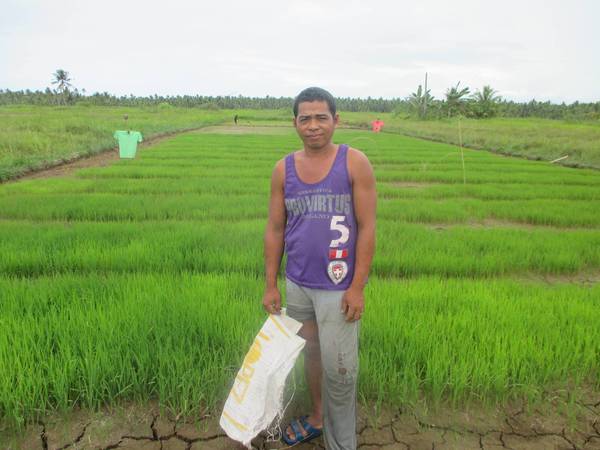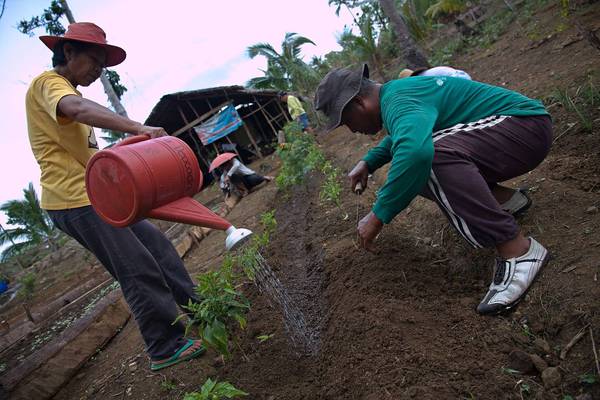Nearly two years after the Haiyan typhoon struck the Philippines in November 2013, local farmers have increasingly been faced with the consequences of extreme drought. According to scientists from the US National Oceanographic and Atmospheric Administration (NOAA) and from the British Meteorological Office (MET), an unusually long period without rain has caused the phenomenon of El Niño.
 Samar Joper Cornice, an associate at Caritas, described the current situation on the island, "In areas where they are working with Caritas Czech Republic, farmers are entirely dependent on rain. Without irrigation channels they are entirely at the mercy of the vagaries of the weather yet the government has failed to complete many of these channels in the districts of Basey and Marabut.” Joper adds that "Farmers have been waiting for heavy rain for two months. Unfortunately, besides slight showers, not a single drop has fallen. Only in the district of Marabut have two villages been irrigated. Farmers are forced to plant everything the same way they are used to, even though it has not been raining.”
Samar Joper Cornice, an associate at Caritas, described the current situation on the island, "In areas where they are working with Caritas Czech Republic, farmers are entirely dependent on rain. Without irrigation channels they are entirely at the mercy of the vagaries of the weather yet the government has failed to complete many of these channels in the districts of Basey and Marabut.” Joper adds that "Farmers have been waiting for heavy rain for two months. Unfortunately, besides slight showers, not a single drop has fallen. Only in the district of Marabut have two villages been irrigated. Farmers are forced to plant everything the same way they are used to, even though it has not been raining.”
On the Philippine island of Samar, where Caritas CR has been operating for two years, farmers normally harvest rice twice a year. Rainfall is regular in November and in July. In areas without access to irrigation, farmers plant rice twice a year and hope that the weather will be favourable. "After Haiyan, the weather changed drastically. In addition, typhoon Ruby washed away our fields one year ago (Ruby hit the island of Samar in December 2014). Extreme drought this year did not allow our farmers to plant their crops. It is now becoming hard to feed one’s own family," Primitivo Vojan, a farmer from the village of Sawa, said.
"The current drought is a great misfortune for the farmers. Rice is not only a necessary part of Philippine cuisine, but also one of the few sources of income for local families. In light of these abnormal weather changes, Caritas CR will focus its attention on detailed research into the impact of El Niño on the island in the coming weeks. Furthermore, we are changing our strategy projects in order to help farmers bring in as much as possible and that prevent their income from becoming dependent on the rice crop only," Helena Kotková, a representative of Caritas in the Philippines, said.
Immediate humanitarian aid from Caritas CR replaced its previous development projects focused on growing vegetables, organic rice and improving the diversity of agricultural production. The goal was to minimize the dependence of farmers on more than one or two crops, as was common before the typhoon struck.








